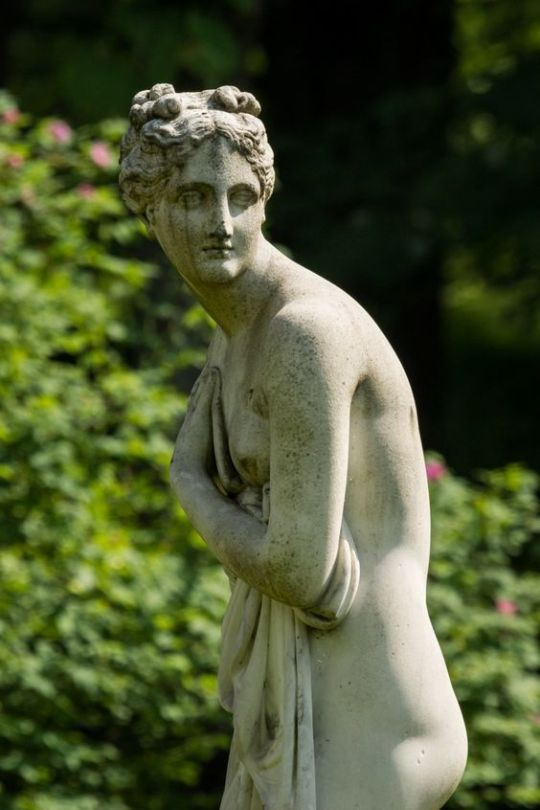#pavlovsk palace
Explore tagged Tumblr posts
Text

Grand Duchess Maria Feodorovnas State Bedchamber,
Pavlovsk Palace, St. Petersburg, Russia
#art#design#architecture#history#luxury lifestyle#style#luxury house#interior design#luxury home#interiors#palace#bedroom#bedchamber#st petersburg#russia#charles cameron#maria feodorovnas#state bedchamber#pavlovsk palace
510 notes
·
View notes
Text
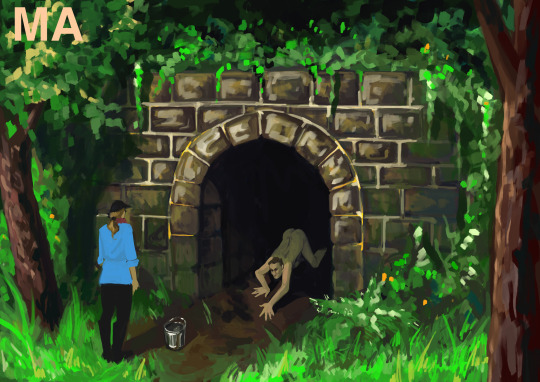
Liv Ullmann feeds Ingmar Bergman with fish at Pavlovsk
#digital art#original art#my art#artists on tumblr#illustration#ingmar bergman#liv ullmann#pavlovsk palace
3 notes
·
View notes
Text


The 2 volume boxed set documenting Pavlovsk Palace arrived this evening. It was a bargain considering the size of the set and the gorgeous color photographs of the exteriors, interiors, park, and collections. This particular set replaces one that I had to give-up when I last moved. But, I had kept the Suzanne Massie book that is probably the best history in English of this magnificent dwelling.
My interest in Pavlovsk derives from the fact that it was last owned and occupied as a country retreat by Grand Duke Konstantin Konstantinovich Romanov about whom I previously posted. He reputedly loved the place and would have been deeply saddened at the way the Nazis literally bombed out so much of the palace's interiors. These were meticulously restored so that one can enjoy them either in person or by means of the volumes above. I doubt that I'll ever make it to Russia. So, this is the next best thing.
#books#russia#russian history#architecture#18th century#romanovs#pavlovsk#palace#grand duke konstantin konstantinovich
1 note
·
View note
Text
Pavlovsk Park, Saint Petersburg
Postcard from Russia. The Pavlovsk Park is the park surrounding the Pavlovsk Palace, an 18th-century Russian Imperial residence built by Tsar Paul I of Russia near Saint Petersburg. After his death, it became the home of his widow, Maria Feodorovna. It is now a state museum and a public park. The stamps:
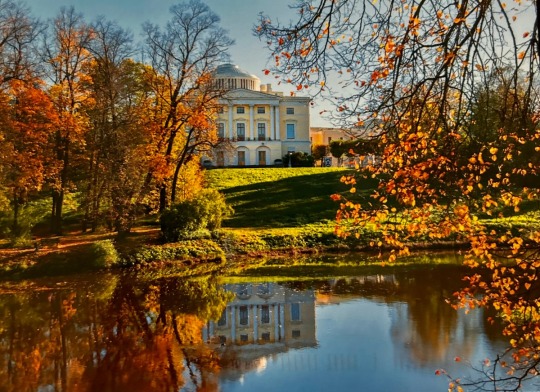
View On WordPress
0 notes
Note
Hi, it would be awesome if you could give us an idea about alexei's personality described by people in his close circle
Hello! Sorry for the late reply. Here are some quotes about Alexei from the people closest to him, and some extracts from his letters and diaries that show his personality.
Alexei's personality
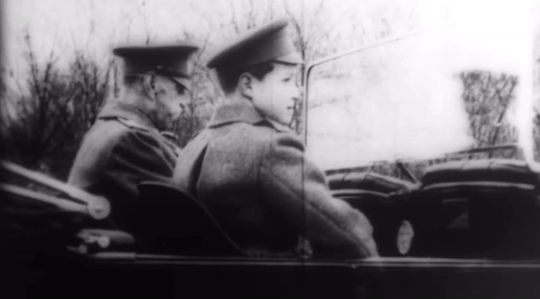
"The Heir ran along the shore and loudly expressed his joy with every surge of water. In general, how much noise and fun there was! I still remember this time with pleasure. Water splashed, flushed and cheerful children returned home." - Sofia Ivanovna Tyutcheva, nurse/nanny, A Few Years Before the Catastrophe
"Alexei, the only son of the Emperor and Empress, a more tragic child than the last Dauphin of France, indeed one of the most tragic figures in history, was, apart from his terrible affliction, the loveliest and most attractive of the whole family. Because of his delicate health Alexei began life as a rather spoiled child." - Anna Vyrubova, close family friend, Memories of the Russian Court
"The more the boy opened his heart to me the better I realised the treasures of his nature, and I gradually began to feel certain that with so many precious gifts it would be unjust to give up hope. Alexis Nicolaievitch was then nine and a half, and rather tall for his age. He had a long, finely-chiselled face, delicate features, auburn hair with a coppery glint in it, and large blue-grey eyes like his mother's. He thoroughly enjoyed life — when it let him — and was a happy, romping boy. Very simple in his tastes, he extracted no false satisfaction from the fact that he was the Heir — there was nothing he thought about less — and his greatest delight was to play with the two sons of his sailor Derevenko, both of them a little younger than he. He had very quick wits and a keen and penetrating mind. He sometimes surprised me with questions beyond his years which bore witness to a delicate and intuitive spirit. I had no difficulty in believing that those who were not forced, as I was, to teach him habits of discipline, but could unreservedly enjoy his charm, easily fell under its spell. Under the capricious little creature I had known at first I discovered a child of a naturally affectionate disposition, sensitive to suffering in others just because he had already suffered so much himself." - Pierre Gilliard, Alexei's tutor, Thirteen Years at the Russian Court
"Spring 1915 …Yesterday he [Alexei] gorged on black crackers and in the evening, he was sent directly to [Dr.] Derevenko." - Letter from Maria to Nicholas II, Maria Romanov: Third Daughter of the Last Tsar, Diaries and Letters
"18 March [1912] - Pavlovsk… Recently, on the 14th, my wife had lunch with their Majesties, and was embarrassed by the behaviour with the Heir, who is almost two years older than Vera. He wouldn’t sit up, ate badly, licked his plate and teased the others. The Emperor turned away, perhaps to avoid having to say anything, while the Empress rebuked her elder daughter Olga, who was next to her brother, for not restraining him. But Olga cannot deal with him." - 1912 Diary of Grand Duke Konstantin Konstantinovich
"In appearance he resembled his sister Tatiana : he had the same fine features, and her beautiful blue eyes ; he loved his sisters, and they adored him, and patiently submitted to his teasing. The Tsarevitch was a lively, amusing boy, with a wonderful ear for music, and he played well on the balalika : like Tatiana he was shy, but, once he knew and liked anyone, this shyness vanished. The Empress insisted upon her son being brought up, like his sisters, in a perfectly natural way. There was no ceremonial in the daily life of the Tsarevitch : he was merely a son, and a brother to his family, although it was sometimes quaint to see him assume '' grown up " airs. One day, when he was indulging in a romp with the Grand Duchesses, he was told that some officers of his regiment had arrived at the Palace and begged permission to be received by him. The Tsarevitch instantly ceased his game, and, calling his sisters, he said very gravely : *' Now, girls, run away. I am busy. Someone has just called to see me on business." - Lili Dehn, close family friend, The Real Tsaritsa
"Sunday 13th August 1906 …we were all invited to have tea with Their Majesties. All four daughters came to the dinging room, and also, the the great joy of our children, the two-year-old Tsesarevich. He went around the tea table and after greeting everyone, climbed onto his mother’s lap. Igor was sitting beside her, and the little Heir happily moved onto his lap and called him “New” as he was someone unfamiliar. After that, my boys and the Tsar’s girls played with him merrily on the floor…We were all delighted." - Diary of Grand Duke Konstantin Konstantinovich
The following are all from the diary of Sidney Gibbes, English tutor:
"25 January: [Alexei is] On sofa: foot tied up. Talked about the dog and then showed him new picture-book. Afterwards made a paper hat each, which turned out badly, and then began paper boxes; I showed him one complete. He spoke more English in making the box and asked the questions relative to it in English."
"3 February: We drew things on the blackboard with eyes shut. Added tails to pigs, and his manner lost much of its shyness."
"8 February: During this lesson we played on the floor, and I made him flags out of paper by drawing it and colouring. He coloured one and I the other. Flagstaff was also rolled out of paper and tied with wire."
"3 March …Began the story of ‘The Fisherman of York’. He understood very little. A[nastasia] N[ikolaevna] came in from Music [lesson] and explained in Russian." - Printed in Tutor to the Tsarevich
"The Tsarevich lay all day, while we tried to amuse him as best we could. The poor little man longed for Monsieur Gilliard's company. He knew so well how to entertain him and make him forget how ill and weak he still felt" - Sophie Buxhoeveden recalling Alexei's attachment to tutor Pierre Gilliard during imprisonment, Left Behind: Fourteen Months in Siberia During the Revolution
"If the Tsarevitch had any peculiarities, I think the most striking was a decided penchant for hoarding. Many descendants of the Coburgs have been unusually thrifty, and perhaps the Tsarevitch inherited this trait. While thrifty he was really a most generous child, although he hoarded his things to such an extent that the Emperor often teased him unmercifully. During the sugar shortage he saved his allowance of sugar, which he gravely distributed among his friends." - Lili Dehn, close family friend, The Real Tsaritsa
"This unusual and exciting night seemed to fill the Czar’s young son with mischief. As I sat in the room near the Emperor’s study, giving the final orders and' awaiting news of the arrival of the train, I could hear the youngster running about noisily, trying to get across the corridor to where I was, to see what was going on there" - Alexander Kerensky, head of the Provisional Government describing the night the Romanov's waited to be moved from the Alexander Palace, The Catastrophe
"Suffering and self-denial had their effect on the character of Alexei. Knowing what pain and sacrifice meant, he was extraordinarily sympathetic towards other sick people. His thoughtfulness of others was shown in his beautiful courtesy to women and girls and to his elders, and in his interest in the troubles of servants and dependents." - Anna Vyrubova, close family friend, Memories of the Russian Court
Alexei was "elegant, intelligent, and had unusual presence of mind. He possessed, moreover, other winning qualities: a warm, happy disposition, and a generous nature which made him eager to be of help and enabled him quickly to establish rapport with others." - General Count Alexander Grabbe, Major-General of the Tsar's convoy, The Private World of the last Tsar
"in the periods of what may be called his good health, he had all the spirits and mischief of any ordinary boy of his age… As time went on and his first shyness wore off, he treated us as friends and… had always some fun with us. With me it was to make sure that each button on my coat was properly buttoned, a habit which naturally made me take great care to have one or two unbuttoned, in which case he used at once to stop and tell me I was 'untidy again'" - General Sir John Hanbury-Williams, British ambassador in Mogilev, The Emperor Nicholas II, as I Knew Him
""He had a kind heart and was very fond of animals. He could be influenced only by his feelings, and would not yield to authority. He submitted only to the emperor. He was a clever boy but was not fond of books. His mother loved him passionately. She tried, but could not be strict with him, and most of his desires were obtained through his mother. Disagreeable things he bore silently and without grumbling. He was kind-hearted and during the last period of his life he was the only one who liked to give things away. In Tobolsk he had some odd fancies -- for example, he liked collecting old nails, saying: "They may be useful."" - Testimony of Sidney Gibbes to the Sokolov Report, The Last Days of the Romanovs (1920)
"Alexis Nicholaevitch, being a very playful and mischievous boy, on one occasion peeped through the fence. After this was learned by Nikolsky [deputy guard at Tobolsk] he came and made a huge fuss about it. He reprimanded the soldier who was on duty and spoke in a very sharp tone to the czarevitch. The boy got offended and protested to me that Nikolsky was shouting at him." - Testimony of Evgeny Kobylinsky to the Sokolov Report, The Last Days of the Romanovs (1920). To find more about Kobylinsky's unique relationship to the family, see this post.
Alexei's relationship with his sisters
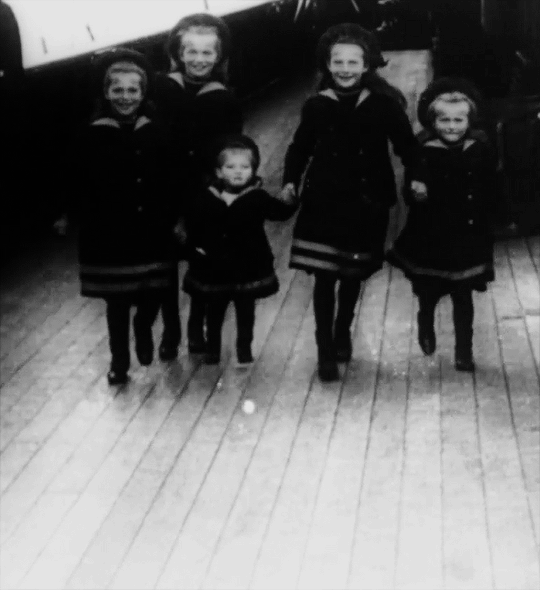
"We all kissed the Empress' hand and that of the Grand Duchesses. That year, we kissed the Tsarevitch's little hand, too; but afterwards, that custom was stopped, since the Tsarevitch didn't miss his chance to boast about it and give himself airs in front of his sisters." - General Alexander Spiridovich, Chief of Security, Last Years at Tsarskoe Selo, Volume 1
"10 January. Aleksei and Anastasia are both moving their beds into the playroom, where they lie next to each other all day. During the day we all have tea up there." - Extract from Tatiana's 1917 diary, Tatiana Romanov, Daughter of the Last Tsar: Diaries and Letters
"Aleksei, my little soul, darling little one. It is so boring here without you and Papa… I was just at the Grand Palace with Maria and Shvybz [Anastasia]… I squeeze you in my mind and love you very very much." - undated letter from Tatiana to Alexei, circa 1916, Russia’s Last Romanovs: In Their Own Words
"As for poor Alexei Nikolaevich, he was as if rooted to the armchair the whole time [unwell]. It was touching to see his sister, Tatiana Nicholaievna, lavishing attention on him before the luncheon." - General Alexander Spiridovich, Chief of Security, Last Years at Tsarskoe Selo, Volume 2
"Sweet Piggy! Sleep well and wake up in the morning with a belly full of milk! Alexei 1914" - letter from Alexei to Anastasia, Alexei: Russia's Last Tsesarevich - Letters, diaries and writings (Volume 1)
"...Don’t tease Maria" - Letter from Alexandra to Alexei, 1 December 1914, Alexei: Russia's Last Tsesarevich - Letters, diaries and writings (Volume 1)
"28 January Tuesday …Too lazy to write this by himself, so Olga is writing it!" - Alexei's 1916 diary, Alexei: Russia's Last Tsesarevich - Letters, diaries and writings (Volume 2)
Alexei's haemophilia

"Everything possible, everything known to medical science, was done for the child Alexei. The Empress nursed him herself, as indeed, with the assistance of professional women, she had nursed all her children. Three trained Russian nurses were in attendance, with the Empress always superintending. She bathed the babe herself, and was with him so much that the Court, ever censorious of her, complained that she was more of a nurse than an Empress." - Anna Vyrubova, close family friend, Memories of the Russian Court
"Livadia. 30 August 1913 …Alexei is well. He has already had 4 mud baths. I took a photo of him when he was being treated in the mud and will glue in an album for you. Alexei’s leg stretched 175 degrees and the leg is almost straight" - letter from Maria to former nanny/nurse Maria Ivanovna Vishnyakova. Maria Ivanovna Vishnyakova was Alexei’s nanny, though was dismissed by Alexandra following disagreements and allegations against Rasputin. I find it intriguing that the girls stayed in touch with her and kept her informed of Alexei's health.
I have slightly less information/quotes on Alexei saved as my research is largely about his sisters, but I hope that this was insightful nonetheless. Thank you for your question!
#q#ask#answered#Alexei Nikolaevich#Alexei Romanov#Tsarevich Alexei#Romanov family#Russian history#Imperial Russia#quotes#sources#letters#diaries#Sidney Gibbes#Sydney Gibbes#Pierre Gilliard#Alexander Grabbe#John Hanbury-Williams#Sofia Ivanovna Tyutcheva#Sophie Buxhoeveden#Isa Buxhoeveden#Lili Dehn#Alexander Spiridovich#Anna Vyrubova#Evgeny Kobylinsky
56 notes
·
View notes
Text
Vladimir Paley at the Corps de Pages - Part 2

His sister Maria [Pavlovna] recalled: "There was nothing military in his character, but the years spent away from an adoring family, the contact with boys of his own age, and the discipline of the school did him a lot of good. He became more natural, simpler in his way. Having formerly spoken Russian very badly, he quickly learned his mother tongue and knew it better than many of those who had lived in Russia since childhood." During these early years in Russia, Volodia started to develop closer ties to his half brother Dimitry, who in a certain way faced a similar situation. He was separated not only from his father but also from his beloved sister Maria, who was living in Sweden. They led very different lifestyles, something understandable if we remember in 1910 Vladimir was only thirteen and Dimitry was already an eighteen-year old glamorous officer. However, the brothers got along well and enjoyed spending time together.

Vladimir also increased contacts with other Romanov relatives, several of whom he had already met in France. Despite the official attitude toward morganatic marriages, most of the grand dukes and their children felt sympathy for their handsome and talented young cousin. Of course, there were some reluctant ones, like Grand Duke Serge's widow Ella whose hostility toward the Countess von Hohenfelsen and her children was well known. She once remarked coldly that Vladimir was "not of the family. "

Poetry was not alien to the Romanov dynasty. One of Paul's first cousins, the talented Grand Duke Konstantin Konstantinovich, was already a distinguished scholar and famous poet, who since the 1880's published his verses under the name K.R. and wrote lyrics for several compositions by Tchaikovsky. Vladimir von Hohenfelsen read avidly K.R.'s verses, and several of his own literary creations were deeply influenced by them. The grand duke, father of a big and happy family, lived in the beautiful palace of Pavlovsk near Saint Petersburg, and Vladimir spent many happy hours there which he remembered in one of his favorite poems. Prince Gabriel Konstantinovich (later Grand Duke), second son of K.R., who met Vladimir for the first time in 1914, recalled in his memoirs: "Bot'ka was handsome, gracious and talented in a high degree: he wrote remarkable verses in Russian as well as in French… He was loved in the regiment…" From the Corps-des-Pages, Vladimir was well acquainted since 1912 with two of K.R's sons, Konstantin Konstantinovich and Igor, who studied there and were later to share his final days. Another brother, Oleg, also showed an early gift for poetry.

In 1913, Russia celebrated with countless feasts and parades the 300-year reign of the Romanov dynasty. Paul and Olga visited Russia, taking time to prepare for their definitive return. The Corps-des-Pages students attended many of the functions, and Vladimir wrote home describing some of them. When the celebrations ended, he went back to school and kept on writing. When 1914 started, Vladimir had already become a very good looking young man who combined his handsome features with a noticeable charm. He enjoyed life at its best and became a popular character among the Saint Petersburg aristocratic youth. At a fancy dress ball given by Countess Kleinmichel in January that year, Olga Valerianovna was fascinated to hear the guests agree that her son was the handsomest figure at the occasion and to have him described as "the Prince Charming who is the dreamt of in fairy tales".
"A Poet Among the Romanovs" - Jorge F. Sáenz
#romanov#paul alexandrovich#imperial russia#imperial family#royalty#olga paley#grand duke#elizabeth feodorovna#vladimir paley#grand duke konstantine konstantinovich#oleg konstantinovich#gabriel konstantinovich
14 notes
·
View notes
Text
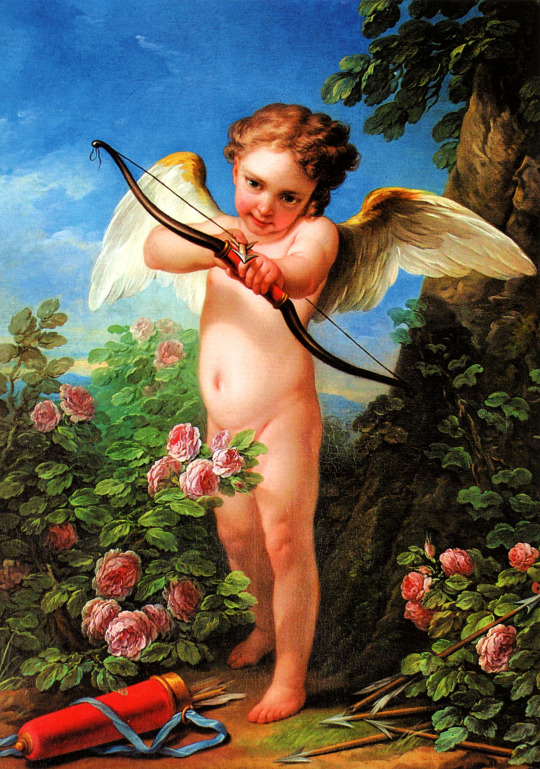
Charles-André van Loo (French, 1705-1765) Cupid Shooting a Bow, 1761 Pavlovsk Palace
#Charles-André van Loo#french art#1700s#cupid shooting a bow#art#fine art#european art#classical art#europe#european#oil painting#fine arts#mediterranean#europa#french#france#mythological art#cupid
59 notes
·
View notes
Text

The Pavlovsk Park (Павловский парк) is the park surrounding the Pavlovsk Palace, an 18th-century Russian Imperial residence built by Tsar Paul I of Russia near Saint Petersburg.
...
6 notes
·
View notes
Text
Prince Igor Konstantinovich of Russia
Son of Grand Duke Konstantin Konstantinovich and his wife Grand Duchess Elizabeth Mavrikievna. He was born on 10th June 1894 in Strelna.

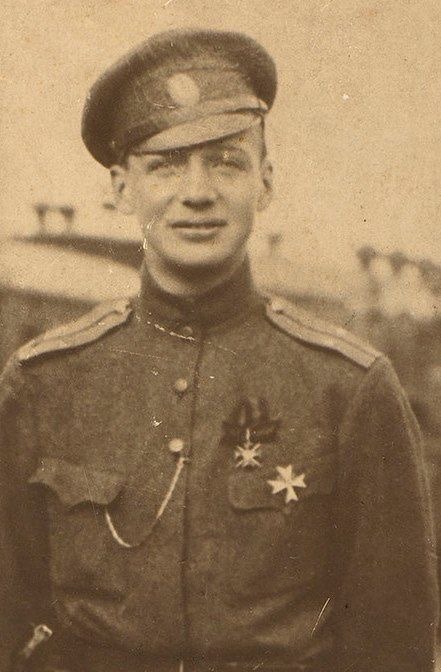


Prince Igor Konstantinovich of Russia
Son of Grand Duke Konstantin Konstantinovich and his wife Grand Duchess Elizabeth Mavrikievna. He was born on 10th June 1894 in Strelna.
He was brought up along with his older brother Prince Oleg Konstantinovich, who was two years older than him. They spent a lot of time together, sharing games and children’s toys. Prince Igor also loved animals from childhood, especially horses. While Igor was more calm, thoughtful, sentimental, and vulnerable. He waa enrolled at Page Corps, for which Prince Igor was very proud that he was now a military man, and he did not hide his joy. That at one occasion, having visited the imperial family in the new uniform, he would have traditionally wanted to kiss the Grand Duchess Maria Nikolaevna, but, remembering the instructions of the nanny, she bounced to the side: “No, no. Little girls should not kiss soldiers.” Prince Igor was not at all upset, but, on the contrary, was very pleased that he was mistaken for a real soldier. Igor loved church singing and possessing a good ear for music and voice, he willingly took part in festive services. He was so fond of the church and worship that in adolescence be was appointed clerk of the field church. He was later a clerk of the church of the Pavlovsk Palace. After graduating from the Page Corps, the Prince passed the exam for an officer and was enrolled in the Life Guards Hussar Regiment. It was in his composition that he went to the First World War. Prince Igor was the youngest representative of the Romanov dynasty in the First World War, he was only twenty years old when he went to the front. But he later suffered from pleurisy, the Prince was sent on vacation for treatment to Petrograd. He also witnessed the death of his favourite brother, Oleg. Which sent their father to an early grave.
After the death of his father, Prince Igor took care of all the economic affairs of Ostashevo, which had been his father’s estate. After recovering from his illness, he later became the Tsar’s wing-adjutant. Prince Igor had a good-natured, disposing character, the Tsar was very happy when Igor was on duty with him. Even colleagues at the front called the Prince "a cheerful person."
Prince Igor Konstantinovich was one of the several Romanovs murdered in 1918.
22 notes
·
View notes
Text
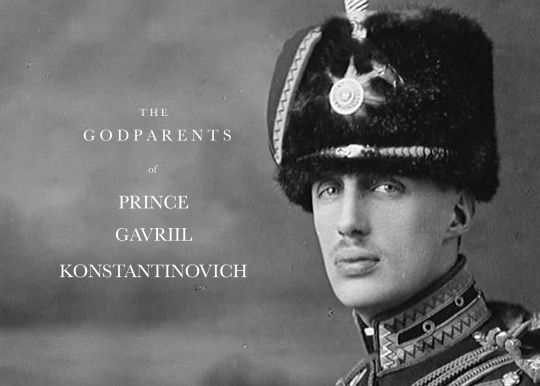


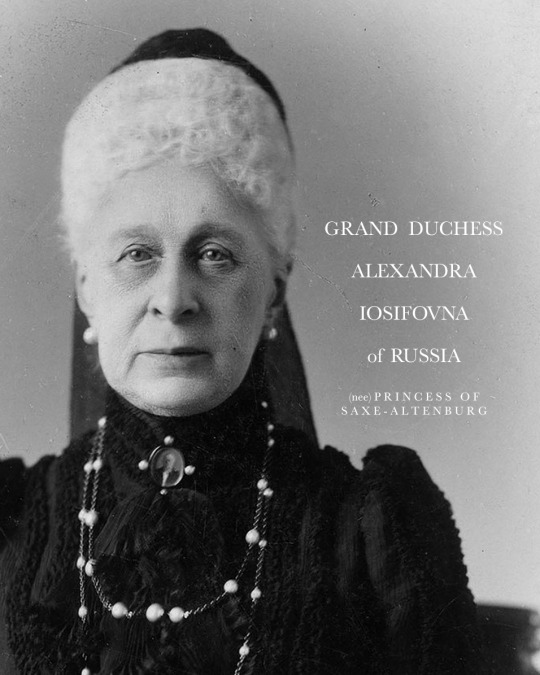
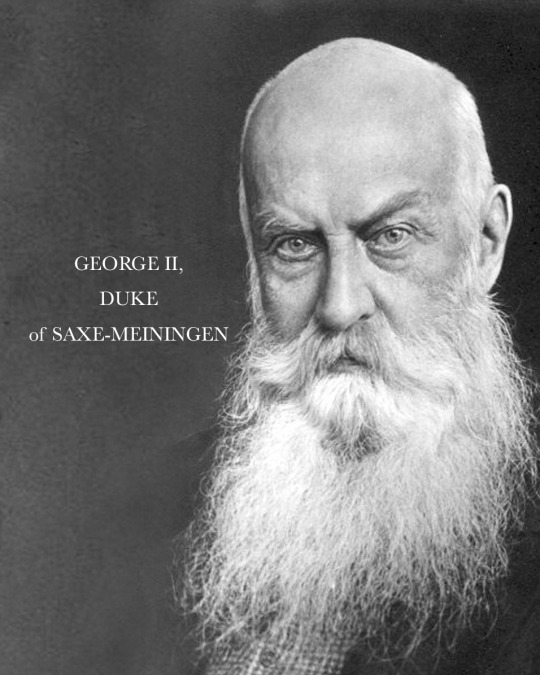
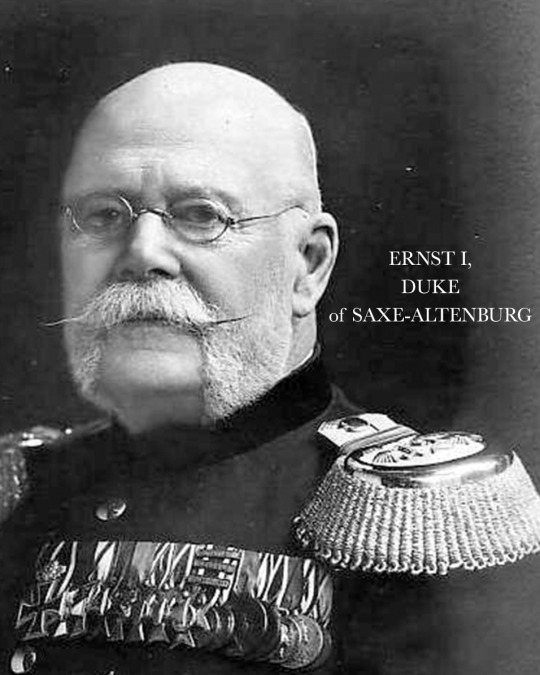
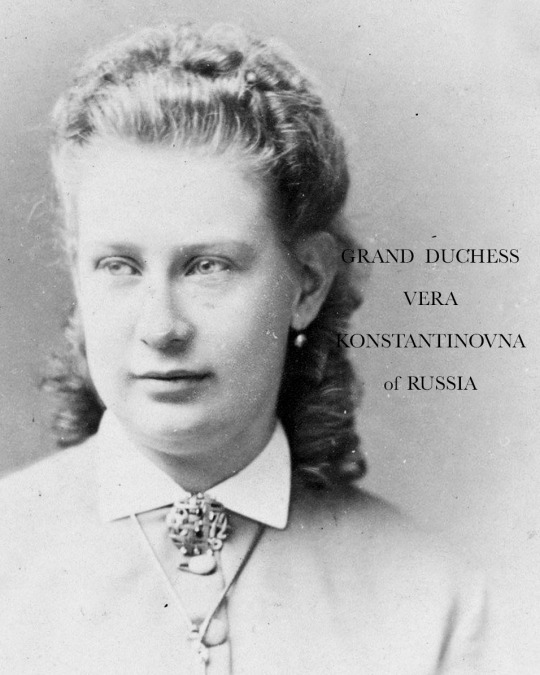
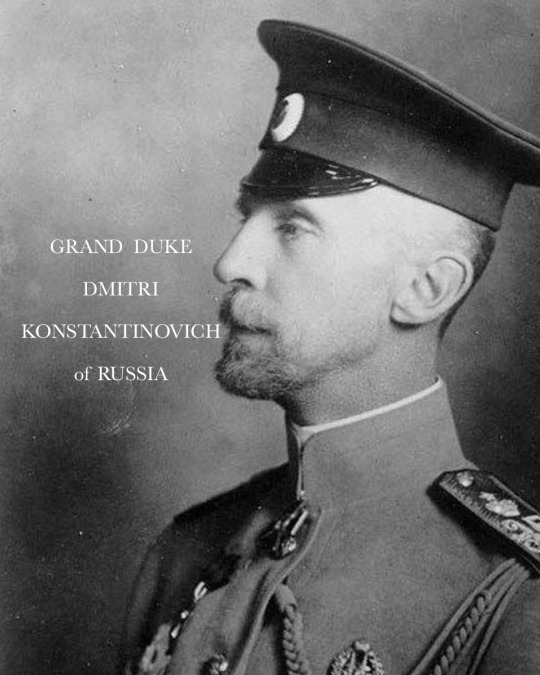
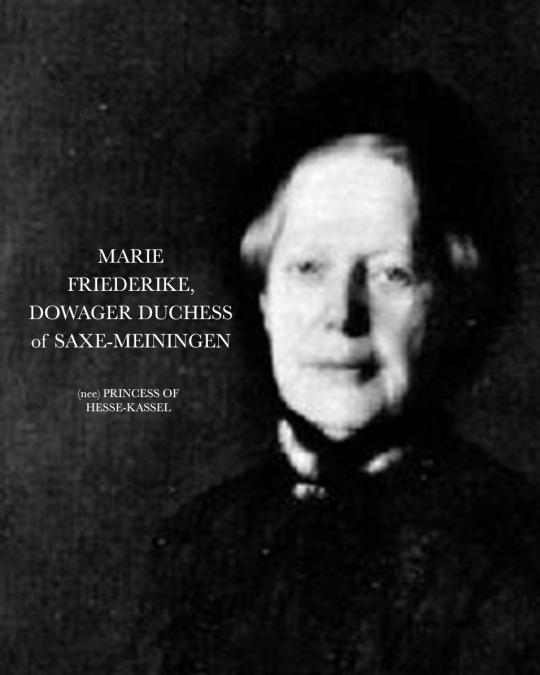
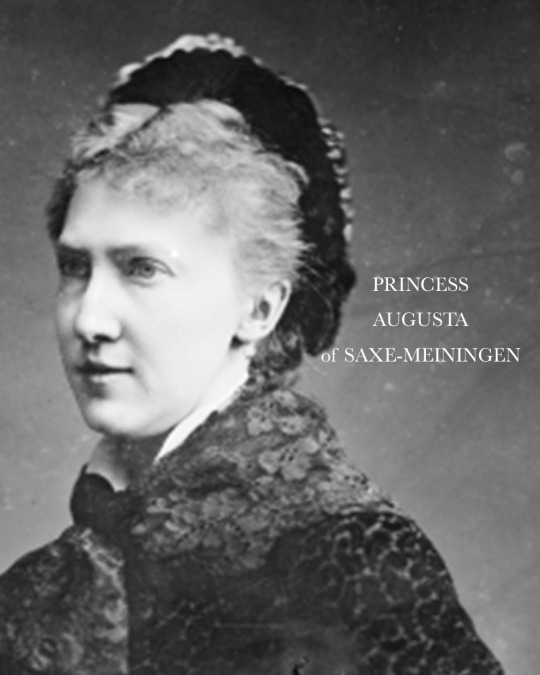
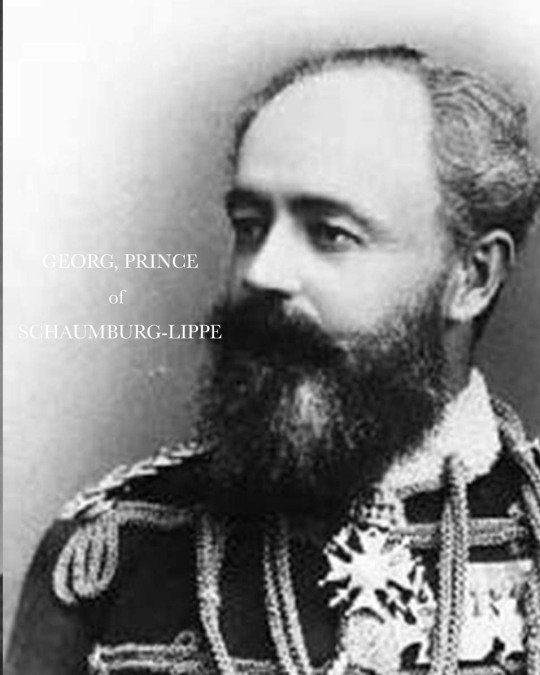
GODPARENTS OF PRINCE GAVRIIL KONSTANTINOVICH
Prince Gavriil Konstantinovich was born on 15 July 1887 in the Grand Bedroom of Empress Maria Feodorovna at Pavlovsk Palace, Saint Petersburg. The second son of Grand Duke Konstantin Konstantinovich of Russia and his German-born wife Grand Duchess Elizabeth Mavrikievna, he was christened on 8 August at 1:30 pm at a private church of Pavlovsk. His godparents were:
ALEXANDER III, EMPEROR OF RUSSIA - his father’s first cousin was named as one of his many godparents. He was highly reactionary in domestic affairs and reversed some of the liberal reforms of his father, Alexander II. He was most likely present at his young cousin’s christening.
GEORGE I, KING OF GREECE - his uncle, the husband of Queen Olga Konstantinovna, was one of his godparents. Born a Danish prince, he was elected king by the Greek National Assembly, when he was only 17. His reign of almost 50 years (the longest in modern Greek history) was characterized by territorial gains as Greece established its place in pre–World War I Europe.
GRAND DUCHESS ALEXANDRA IOSIFOVNA OF RUSSIA - his paternal grandmother, born a German princess, was listed as one of his godparents. Married to Grand Duke Konstantin Nikolaevich of Russia in 1848, she was considered a beautiful woman, but plagued by insecurity. Within the family, she was later known to be a formidable character.
GEORGE II, DUKE OF SAXE-MEININGEN - his maternal great-uncle, was the penultimate Duke of Saxe-Meiningen, reigning from 1866 to 1914. He was likely present, having been named as one of his young nephew's godparents.
ERNST I, DUKE OF SAXE-ALTENBURG - a paternal great-uncle named as a godparent of the young prince, was the reigning Duke of Saxe-Altenburg from 1853 until 1908. He was of a retiring disposition and he took little active part in running the country, of which he ruled for fifty-five years.
GRAND DUCHESS VERA KONSTANTINOVNA OF RUSSIA - one of his paternal aunt, Vera was known in royal circles as an eccentric both in appearance and behaviour. She was named as one of Gabriel's godparents, and was present at the christening. Although she kept in touch with her Romanov relatives, visiting Russia many times, she identified more closely with her adopted country, Württemberg.
GRAND DUKE DMITRI KONSTANTINOVICH OF RUSSIA - his paternal uncle, and his favourite, was also one of his godparents. He followed a military career, and was religious. He never married, and was one of several Romanov relatives executed by a firing squad at the walls of Peter and Paul Fortress during the Russian Civil War.
MARIE FRIEDRIKE, DOWAGER DUCHESS OF SAXE-MEININGEN - his maternal great-grandmother was one of his godparents. Born a Princess of Hesse-Kassel, she married the Duke of Saxe-Meiningen, with whom two children (seventeen years apart) were born.
PRINCESS AUGUSTA OF SAXE-MEININGEN - his maternal grandmother was absent at her grandson's christening, of whom she was named as one of his godparents. In 1862, she married Prince Moritz of Saxe-Altenburg, and bore him five children.
GEORG, PRINCE OF SCHAUMBURG-LIPPE - the husband of his maternal aunt, was also absent at the young prince's christening but was named as one of his numerous godparents. He ruled the small Principality of Schaumburg-Lippe within the German Empire from 1893 to 1911.
Source
14 notes
·
View notes
Photo
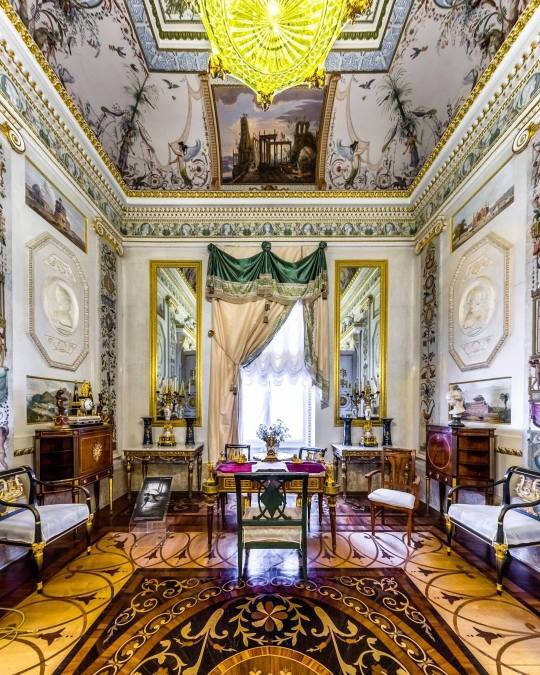
Pavlovsk Palace, Saint Petersburg, Russia
#art#design#interiors#interiordesign#palace#russia#pavlovsk palace#saint petersburg#tsar#imperial#luxury house#luxury home#luxurylifestyle#style#history
347 notes
·
View notes
Note
Fun question. Say if you get to stay in any of their places for a week. Which would you stay in?
That IS a fun question! Let´s see....
If it were back in the day before 1917, I would probably choose Pavlovsk, which to my eyes always seemed the loveliest one, and surrounded by wonderful gardens. Today I would totally spend it in the Winter Palace. I imagine you do not even have to leave the building to have a fantastic experience.
11 notes
·
View notes
Text

Portrait of Paul I, Maria Feodorovna and their Children
Artist: Franz Gerhard von Kugelgen (German, 1772-1820)
Date: c. 1800
Medium: Oil on canvas
Collection: Private collection
Portrait of Paul I, Maria Feodorovna and their Children
The imperial family is depicted against the backdrop of Pavlovsk Park. On the right in the background is the façade of the Pavlovsk Palace, facing the Slavyanka River.
The painting depicts, from left to right: Grand Prince Alexander Pavlovich in the uniform of the Life Guards Semyonovsky Regiment, leaning on a pedestal with a bust of Peter I; next to him stands Grand Prince Konstantin Pavlovich in the uniform of the Life Guards Cavalry Regiment; further on, little Grand Prince Nikolai Pavlovich is leaning against the knees of his mother, Empress Maria Feodorovna. Behind the figure of the seated Empress stands Grand Princess Ekaterina Pavlovna, and in the center of the composition, behind the harp, is Grand Princess Maria Pavlovna. Behind her, in the shade of the trees, is a column with a bust of Grand Princess Olga Pavlovna, who died in infancy. Further on, leaning on the knees of Emperor Paul I (in the uniform of the Preobrazhensky Regiment), stands the youngest daughter, Grand Princess Anna Pavlovna. At the foot of the chair on the ground sits a child - Grand Duke Mikhail Pavlovich. At the right edge of the painting stand Grand Dukes Alexandra and Elena Pavlovna.
The anachronism in the depiction of the uniforms of Alexander and Constantine is striking. Their tailcoat cut with a very high standing collar, open in the front, was introduced by Alexander I only in 1801. The innovation in the cut is easy to detect when comparing the uniform of the eldest sons with the suit of Paul I. This circumstance indicates that the "Family Portrait" was partially rewritten by the artist after the death of Paul I. In the handwritten Catalogue of the Paintings of the Pavlovsk Palace, compiled in 1925 by V. Zubov, there is an indication that this incongruity was noted by Emperor Alexander II. When examining the painting in infrared rays, it was discovered that the painting was indeed rewritten, and initially the uniforms of Alexander and Constantine looked different.
#group portrait#paul I of russia#maria feodorovna#sophie dorothea of wurttemberg#landscape#oil on canvas#russian empire#russian monarchy#full length#family portrait#men#women#children#chairs#trees#bust#harp#costume#conversation piece#franz gerhard von kugelgen#german painter#russian culture#early 19th century painting
5 notes
·
View notes
Text
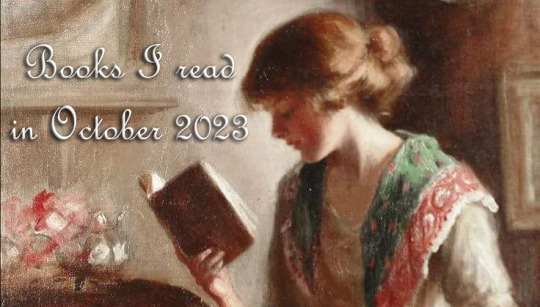
The Palace: From the Tudors to the Windsors, 500 Years of Royal History at Hampton Court
Author: Gareth Russel
First published: 2023
Rating: ★★★★☆
Gareth Russel is an extremely readable writer and I particularly love his biography of Katherine Howard. However, The Palace did not meet all of my expectations. I had hoped this would indeed be a story of the building, with its workings, its growth, its daily life, and its impact. Instead what I got was a swift (even if enjoyable) fast course on English royalty from the Tudors onwards. The Hampton Court in itself did not seem to be especially important to anything that happened. If I already did not have considerable knowledge about English history, I would also probably get swamped by the names and events that span over 500 years but need to be crammed into roughly 350 pages. Well written, not uninteresting, I did like it a lot but ultimately... I guess not many books can be like Pavlovsk : The Life of a Russian Palace
The Girl Who Couldn't Read
Author: John Harding
First published: 2012
Rating: ★★★★☆
Even though this is officially a sequel, it can easily be read as a standalone. In both cases, I found it engaging and OH SO satisfying.
Prize for the Fire
Author: Rilla Askew
First published: 2022
Rating: ★★★★★
A portrait of a complicated woman who fights for her own identity and strength and eventually finds it, along with inner peace, in her faith. Anne Askew was, by a definition, a religious fanatic in a time when religion was being redressed and differences of opinion on it punishable by death, and Rilla Askew (a curious accident of a name) does not make her exactly likable - which is good, because instead of a legendary martyr washed of off all sins, we get a believable and complex human character, a woman trapped by her era and her circumstance. The whole book is what I would absolutely call a quality historical fiction and the nearer the end, the more powerful it becomes.
Russian Fairy Tales
Author: Alexander Afanasyev
First published: 1855
Rating: ★★★★☆
It took me several months to go through all of the stories. Some I enjoyed more than others, naturally, but I suppose the main great thing about this collection is the possibilities it gives to future authors who can search for inspiration in it.
Magic Lessons
Author: Alice Hoffman
First published: 2020
Rating: ★★★★★
Practical Magic was an OK book but I loved The Rules of Magic and this one is also *Chef´s kiss*. I was ready to scream at a certain point near the end and audibly breathed my relief afterward. Alice Hoffman is a beautiful storyteller.
The Company
Author: J.M. Varese
First published: 2023
Rating: ★★★☆☆
This had a gorgeous cover, some seriously creepy vibes, and not bad writing. Unfortunately, most of the book felt like an endless repetition of previous scenes, and in the end, there is really no resolution, just a feeling of being confused. At some points, I thought this book needed much more editing since some dialogues felt unnecessary. I also felt very frustrated that whenever the two main characters interacted and you would hope they would actually have a conversation, it ended after a bunch of sentences with "Ya know?" "I know", but my sweet dude, WE don´t know. Not a terrible book by any means, but it truly could have been so much more.
Maximilian Kolbe: the Saint of Auschwitz
Author: Jean-François Vivier
First published: 2021
Rating: ★★★★☆
The life of Maximilian Kolbe was remarkable, not only for his martyrdom he chose to save another person but for his tenacity, unwavering energy, and belief in God and that everybody can become holy. The richness of it, however, makes it difficult for a volume as slim as this one to really make you feel connected to his story. I felt that it either needed to be a bit longer, or should have focused more on at least some of the episodes. That said, this makes his legacy accessible to any reader, and the art style, though simple, conveys everything it needs to. I am also happy to note there are actual photographs of the saint included at the end of the book.
The Mill on the Floss
Author: George Eliot
First published: 1860
Rating: ★★★★☆
I am a little torn. Some of the scenes were written so beautifully and played out in a manner so powerful one could not but be swept away. At other times I felt that while still written well, the pacing was off and the mundane was losing my interest. I understand that the first part was needed to establish the characters and let us truly know them, but I was also seriously considering DNF-ing the book while plowing through. My rating would be in between 3 and 4 stars, but since Goodreads does not allow that, I will be generous.
Mere Christianity
Author: C.S. Lewis
First published: 1942
Rating: ★★★★★
C.S. Lewis explains Christianity in a very sensible and natural manner, with no shoving of it down your throat. I loved all of the parables and examples he used, bar one, which obviously stemmed from his inexperience with that one issue: actual women. (Or at least he had little experience of them at the time he wrote this book). "Who would you rather talk to if this happened? Man or a woman?" "The one with the brain, Clive Staples, the one with the brain." Other than that small part of one chapter, this is a book any Christian can easily and reliably draw on for inspiration when speaking about their faith to others.
Hell Bent
Author: Leigh Bardugo
First published: 2023
Rating: ★★★★☆
I was reading this slowly, a few pages at a time, to keep my sanity and focus, while the genocide of Palestinians was raging (still is) in the world for all of us to witness. Who would have thought that a book about demons and Hell would be absolutely nothing compared to our reality? But yes, it was absorbing, it led me someplace else for a moment. It was good.
Small Spaces
Author: Katherine Arden
First published: 2018
Rating: ★★★☆☆
I wish this had been an adult horror because I guarantee you I would have shat myself.
4 notes
·
View notes
Text

⚜️Empress Maria Feodorovna⚜️
Maria Feodorovna, one of the first women of her time, mastered the turning business. She turned amber and ivory items on a lathe: table decorations, inkpots. The SHM collection contains a portrait cameo by Maria Feodorovna, depicting the august mother-in-law in the image of Minerva, with a helmet decorated with a laurel wreath and a sphinx. The cameos were made of multilayer jasper and agate.
Maria Fedorovna was also fond of drawing and painting, first of all having mastered the technique of pastels. The Russian Museum contains a still life in the style of the "Little Dutchmen", performed by the Grand Duchess in 1787. In the General Office of the Pavlovsk Palace you can see other examples of her works - "portraits of children, landscapes and still lifes, oil paintings, watercolors and pastels engraved on milk glass"
.
#onthisday, #onthisday #history #romanovs #Russia #dinasty #grandduchess #prinsess #queenvictory #royal #royalfamily #Elizabeth #Alexandra #OTMA #family #россия #романовы #love #любовь #история #санктпетербург #saintpetersburg
0 notes
